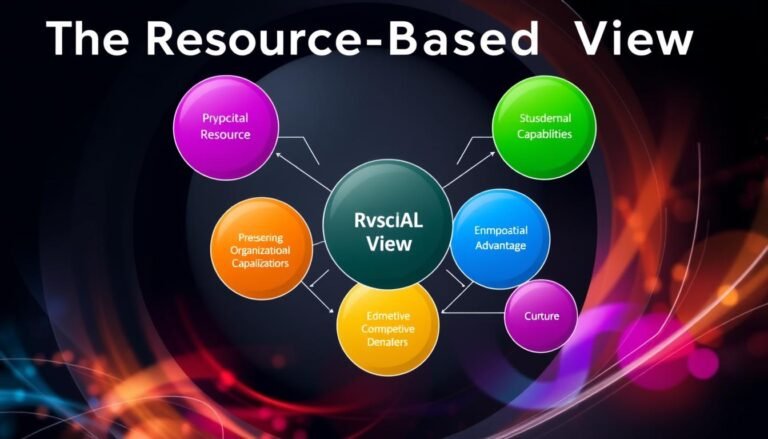Corporate Social Responsibility (CSR): A Complete Guide
Can a company’s focus on Corporate Social Responsibility (CSR) boost its reputation and help it succeed financially? In today’s fast-changing business world, CSR is key to a company’s strategy. It combines ethical business practices with efforts to be sustainable. By caring for social and environmental issues, companies can meet what customers want and build trust with the community.
CSR has become more important, moving from just a trend to a crucial part of doing business. For those wondering about its worth, here’s the truth: companies that focus on CSR often see more loyal customers and happier employees. This leads to more profit. The United Nations Industrial Development Organization (UNIDO) says CSR shows how companies can work with stakeholders and make a positive change in society.
Key Takeaways
- Engaging in CSR helps build strong bonds between businesses and nonprofits, leading to growth for both.
- More than half of millennials support brands that show they care about social and ethical issues.
- 71% of millennials want companies to lead on big social issues.
- 64% of people feel a stronger bond with brands that share their values.
- Companies with happy employees tend to make 21% more profit.
- 56% of shoppers are more likely to buy from brands that are socially responsible.
- 40% of consumers look for brands that have a clear purpose and act with intention.
What is Corporate Social Responsibility (CSR)?
Corporate Social Responsibility (CSR) is about a company’s duty to act ethically and make a positive impact on society and the environment. It includes many practices, like reducing carbon emissions, treating workers fairly, and giving back to the community. As customers expect more from companies, CSR has become key to being accountable.
Definition and Overview
The CSR definition is about a company doing business in a way that’s good for everyone. This means using resources wisely, cutting down on waste, and making products affordable for all. Most Americans believe it’s important for companies to help make the world better.
Importance of CSR in Today’s Business Environment
CSR is very important today. The Deloitte survey found that many young people look for jobs where they can make a difference. Companies with a clear purpose keep their employees longer and attract new ones. People also like to buy from companies that care about ethics.
Studies show that companies focused on doing good grow faster than others. As people want to know more about how companies work, having a strong CSR plan is key for success and being responsible.
| Statistic | Data Point |
|---|---|
| Millennials & Gen Z prioritize ethics in job choice | 44% and 49% |
| Retention advantage of purpose-driven companies | Up to 40% |
| Americans who value companies’ positive contributions | 70% |
| Preference for purchasing from companies with CSR | 77% |
| Growth in brand value for impactful companies | 175% |
The Key Components of CSR
Corporate Social Responsibility (CSR) includes many important parts. These parts help a company look good and make a positive change in society. Companies that follow these parts often get a better reputation, more loyal customers, and do better financially.
Environmental Stewardship
Being responsible for the environment is a big part of CSR. Companies work on being sustainable and protecting nature. For example, Starbucks aims to cut down on greenhouse gases, save water, and reduce waste by 2030.
This helps the planet and makes the company look good. It also draws in customers who care about the environment.
Ethical Business Practices
Being ethical is key for trust and openness in a company. Companies should treat employees fairly and be honest and accountable. Companies like Home Depot are focusing on diversity and training to help everyone move up in their careers.
This kind of behavior makes customers trust the company more and might even make them buy more.
Philanthropic Endeavors
Being generous shows a company cares about making a difference in society. Companies like General Motors give a lot to charities and have big goals for being sustainable. Giving back helps communities and makes the company look better to everyone involved.
Financial and Economic Responsibilities
Companies should act responsibly with money and focus on doing good, not just making more money. They should pay fair wages and avoid bad financial practices. The best U.S. companies for CSR are known for being financially responsible and sticking to ethical standards.
Benefits of Implementing CSR in Your Organization
Corporate Social Responsibility (CSR) brings many benefits to a company. It helps improve the brand and build customer loyalty. By focusing on CSR, businesses can attract customers and engage employees better. This section looks at the main advantages of adopting CSR practices.
Enhanced Brand Image and Reputation
Being committed to CSR can greatly improve a company’s brand image. More and more, people support brands that care for social and environmental issues. Studies show that 87% of Americans prefer to buy from companies that share their values.
This makes brands that focus on CSR stand out in a crowded market.
Increased Customer Loyalty
Effective CSR programs lead to stronger customer loyalty. Over half of consumers are ready to pay more for products from companies that act responsibly. Companies that regularly engage in CSR see customers coming back, helping their sales grow over time.
Employee Engagement and Retention
Companies that focus on CSR see a big boost in employee engagement. Employees who feel connected to their work are 17% more productive and miss work less often. Also, companies with CSR programs see a 57% drop in employee turnover.
Employees want to work for a company they can be proud of. Being part of CSR efforts makes them happier with their jobs.
Improved Financial Performance
CSR can also bring financial gains. Companies that support social causes see a 6% higher market value and earn 20% more revenue. The growth in sustainable investments, up by 68% since 2014, shows the financial benefits of CSR. It’s a smart move for businesses.
| Benefit | Statistic |
|---|---|
| Brand Image | 87% of Americans prefer companies aligning with their values |
| Customer Loyalty | Over half are willing to pay extra for CSR-focused brands |
| Employee Engagement | 17% increase in productivity with engaged employees |
| Financial Performance | 20% more revenue in companies investing in CSR |
Developing a CSR Program
Starting a strong CSR program means knowing what you want to achieve. It’s about making sure your actions match your company’s values. This way, everyone wins, including your community and the planet. Getting these parts right is key to a successful CSR program.
Defining Your CSR Goals and Objectives
Setting clear CSR goals helps companies know what to work on. These goals can cover many areas, like:
- Increasing community engagement through volunteer programs
- Reducing carbon emissions by implementing sustainable practices
- Enhancing employee participation in social initiatives
These goals should match what the company and its people want to achieve.
Identifying Alignment with Company Values
CSR efforts must match the company’s values to be real. Thinking deeply about being ethical, responsible, and caring for the environment shapes CSR plans. When CSR reflects these values, companies become more trusted and respected. For example, companies that stand for ethical behavior see happier employees and more loyal customers.
Engaging Stakeholders and Gaining Support
Getting people involved is crucial for CSR success. Workers, buyers, and local people should share their thoughts. This makes things clear and helps pick CSR projects that people like. Studies show that 75% of young employees want their bosses to speak up on big issues. Working with stakeholders makes sure CSR goals are right and boosts the company’s image and long-term success.
Examples of Effective CSR practices in Companies
Many companies show how to do CSR well. They focus on being socially and environmentally responsible. This makes their brand better and helps their stakeholders.
Starbucks’ Commitment to Environmental and Social Impact
Starbucks works hard on sustainability. They aim to get all their coffee from ethical sources. This shows they care about social fairness and the planet.
They also plan to cut down on greenhouse gases by 2030. This shows they’re serious about a green future.
Home Depot’s Workforce Development Initiatives
The Home Depot puts a lot into helping its workers grow. They offer training and support for a culture of growth. They also focus on renewable energy, aiming for 100% by 2030.
General Motors’ Community Engagement and Sustainability Efforts
General Motors shows strong community support. They give a lot to nonprofits every year. This helps make communities better.
They also want to use 100% renewable electricity at U.S. factories by 2025. This shows they’re serious about being sustainable and ethical.
How CSR Impacts Stakeholder Relationships
Corporate Social Responsibility (CSR) is key in building strong ties with different groups. It makes stakeholder relationships better in many ways. Companies that focus on ethics gain more trust from consumers, boost employee morale, and strengthen ties with nonprofits.
Building Trust with Consumers
Being open about CSR builds trust with customers. Research shows 88 percent of people prefer buying from companies that give back. This shows how crucial it is to be seen as a trustworthy brand today.
With 76 percent of consumers choosing brands that care about community issues, being seen as socially responsible meets what people expect. This builds a strong brand reputation.
Enhancing Employee Morale and Commitment
Employees feel more connected to companies that share their values through CSR. When companies help society, employees feel better about their jobs and work harder. This makes the company culture more positive.
It can take up to 12 positive actions to fix the damage from one negative event. So, having a shared set of values is very important.
Strengthening Relationships with Nonprofits
CSR often means working closely with nonprofits, creating strong partnerships. These partnerships help a company reach more people and make a bigger difference. For example, companies that work with nonprofits to solve social problems gain more trust and improve their reputation.
This approach can create a cycle of positive feedback, making the social and environmental effects of CSR even bigger.
The Future of Corporate Social Responsibility (CSR)
The world of corporate social responsibility is changing fast. This change is thanks to new consumer wants and the big role of technology in CSR. Brands that can change with these trends will do well in a market that cares about social issues.
Emerging Trends and Expectations from Consumers
Consumers now know they have a lot of power when they buy things. They want brands to really care about social and environmental issues. The main trends are:
- Sustainable Practices: Companies need to make sustainability a big part of their work. This means taking care of the environment and being fair in their supply chains.
- Diversity, Equity, and Inclusion (DEI): Brands that focus on having a diverse and inclusive workplace will meet what consumers want. They look for representation.
- Social Impact Investing: More businesses are putting money into projects that help people or the planet, and also make money.
- Transparency: People want brands to be honest about their efforts to be socially responsible. They want to see how these efforts work.
- Purpose-Driven Branding: Companies use CSR to make their brand better known and attract good employees with a clear purpose.
The Role of Technology in CSR Initiatives
Technology is key in making CSR better and more open. It helps in many ways:
- Data Analysis: Big data helps companies see how their CSR efforts are doing. This helps them make better plans for the future.
- Blockchain: Blockchain helps make sure supply chains are ethical and green. It makes it easier to track where things come from.
- Social Media: Companies use social media to talk openly with customers. This builds trust and gets people involved.
- Collaboration: Technology helps different departments work together better. This leads to new ideas for being more sustainable.
| Future Trends in CSR | Consumer Expectations |
|---|---|
| Sustainable Practices | Demand for environmentally friendly products |
| Diversity Initiatives | Desire for inclusive work environments |
| Social Impact Investments | Interest in financial investments with a social impact |
| Transparency | Expectations for open communication about CSR efforts |
Conclusion
Corporate Social Responsibility (CSR) has become key in today’s business world. It’s no longer just a trend. Companies are expected to act ethically and support their communities and the planet.
By focusing on CSR, businesses can build trust with customers. This leads to more loyalty and better sales. In fact, 88% of consumers look at CSR when deciding what to buy.
CSR also helps the economy by encouraging innovation and cutting costs. It makes companies look better, too. 84% of top executives say CSR boosts their reputation.
CSR is vital for a stable and prosperous business environment. Companies like Unilever and Google show how CSR can lead to both financial success and positive community impact. It’s clear that CSR is essential for businesses to succeed in today’s market.
Source Links
- What is Corporate Social Responsibility (CSR)? Guide & Examples
- Corporate Social Responsibility: The Beginner’s CSR Guide
- What Is Corporate Social Responsibility (CSR)?
- What is Corporate Social Responsibility?
- What is Corporate Social Responsability (CSR)?
- What Is CSR? Corporate Social Responsibility Explained
- What Is Corporate Social Responsibility? 4 Types
- What Are the Top Seven Benefits of Having a Corporate Social Responsibility Program?
- Making an Impact: The Benefits of Corporate Social Responsibility (CSR)
- How to Create a CSR Strategy (8 Simple Steps)
- Developing A CSR Strategy: 13 Tips For Smart Companies – 360MatchPro
- 6 Examples of Corporate Social Responsibility | HBS Online
- Inspiring Examples of Corporate Social Responsibility at Work
- The Corporate Social Responsibility Report and Effective Stakeholder Engagement
- Stakeholders, stakeholder theory and Corporate Social Responsibility (CSR) – International Journal of Corporate Social Responsibility
- Corporate Social Responsibility and Stakeholder Management
- The Future of Corporate Social Responsibility: Trends and Opportunities
- What’s the Future of CSR?
- The Future of Corporate Social Responsibility: Where Are We Heading?
- How Corporate Social Responsibility helps a Country’s Economy?
- What is Corporate Social Responsibility, and Why Does It Matter?







